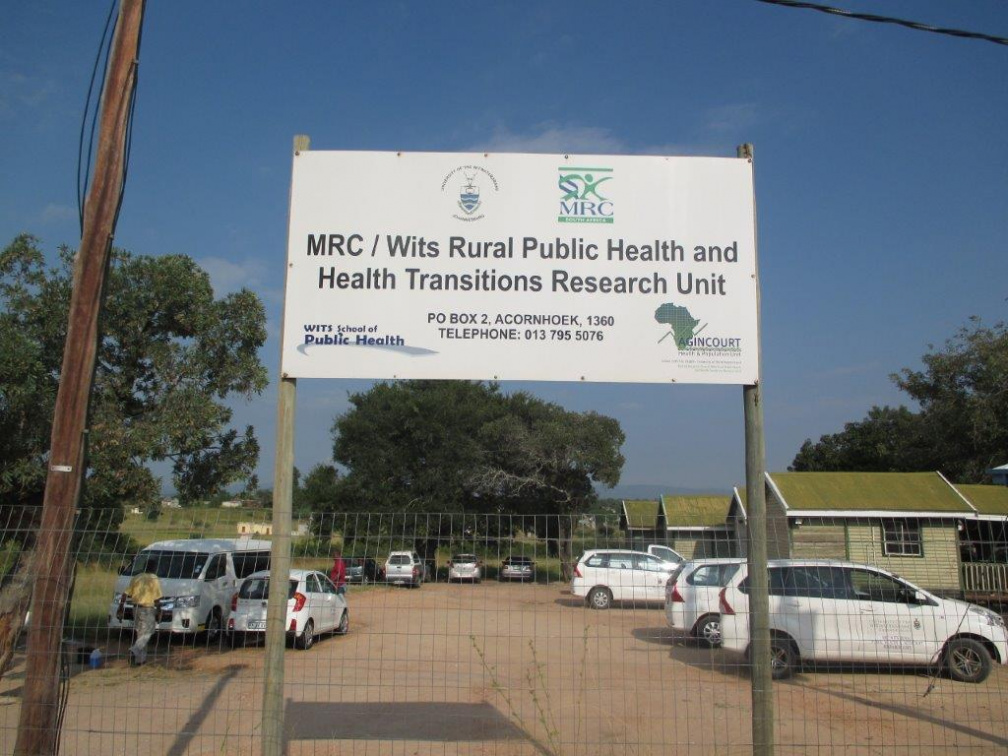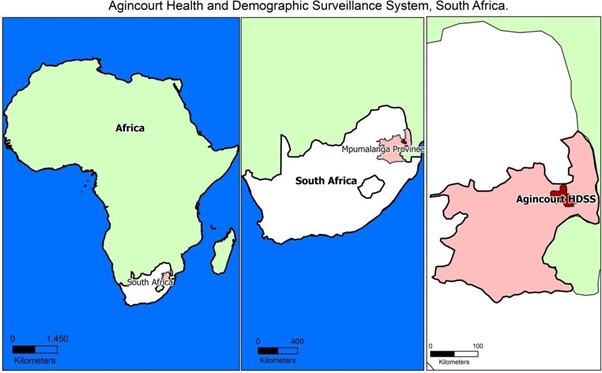
The MRC/Wits Rural Public Health and Health Transitions Research Unit is a globally recognized health, population and development research initiative based on a high-functioning longitudinal research platform established over 30 years ago. The Unit is a Health and Socio-Demographic Surveillance System (HDSS) and was established in 1992, in rural northeast South Africa, close to the national border with Mozambique.
It conducts ground-breaking research across the life-course, focusing particularly on adolescent and older adult stages; is highly productive – producing more than 100 publications annually over the past 5 years, 114 in 2020; is committed to sharing public access datasets; and engages with local, provincial, national and global public sector players in research translation.

Agincourt is situated in resource-poor rural environments and undertakes community-oriented research to elucidate causal pathways, test interventions across the life-course, inform health and social systems, and strengthen evidence to guide policy and programmes.
The research focuses on local and national relevance and impact, while interacting with and contributing to important regional and global questions. Influencing our priorities and the conduct of research are long-standing, respectful relationships with local communities; a future-oriented longitudinal perspective; and empirical findings that capture changing health and social dynamics.

The mandate of the the MRC/Wits-Agincourt Unit
In partnership with host communities and local institutions, to better understand and respond to the dynamics of health, population and social transitions in rural South and southern Africa, in order to mount a more effective public health, public sector and social response and thereby inform national, regional and global policy.
Broadly, all Unit research addresses four fundamental questions:
- The unpredictability and pace of evolving health, population and social transitions
- The interacting social and biological determinants and consequences – highlighting vulnerability and resilience – at key stages along the life course
- When, where and how to intervene most effectively
- The implications for health and social sector responses in order to achieve a more equitable and socially and economically productive society.
The research and engagement work is underpinned by the Health and socio-Demographic Surveillance System (HDSS) platform, covering a whole population cohort of ~120,000 persons in 31 adjacent villages, and involving ongoing monitoring of all births, deaths and in- and out-migrations. This population data is linked to clinic and hospital records. Together, this provides an exceptional longitudinal platform for observational and intervention research along the life course, with special focus on children (respiratory infections), adolescents (HIV/AIDS, depression, NCD risk) and older adults (multi-morbidity, cognitive change). Focus on socio-environmental exposures (education, labor migration, socioeconomic status, natural resources, food security) interacts with emphasis on behavior and physiological risk.
The figure below outlines an organizational framework showing major research areas and links between them over the past 5 years.

This figure highlights key research areas of the MRC/Wits-Agincourt Unit

*Size of dots indicate relative scale of work *Respiratory pathogens: respiratory syncytial virus, influenza, tuberculosis.
As well as Wits University and MRC, the platform is supported by the Department of Science and Innovation as one of three nodes of the South African Population Research Infrastructure Network (SAPRIN). This seeks to make a major local, provincial, and national contribution to health and development by supporting the Department of Planning Monitoring and Evaluation, Department of Health, and other ministries, as well as Statistics South Africa.
Scalable Research and Data Analysis
The population and health priorities of these villages resemble many rural communities in Sub-Saharan Africa. As such the MRC/Wits-Agincourt Unit responds to a scope of rural public health issues to produce health research and data which is translatable to other rural Sub-Saharan African communities.
Scalable Research and Data Analysis
The population and health priorities of these villages resemble many rural communities in Sub-Saharan Africa. As such the MRC/Wits-Agincourt Unit responds to a scope of rural public health issues to produce health research and data which is translatable to other rural Sub-Saharan African communities.

